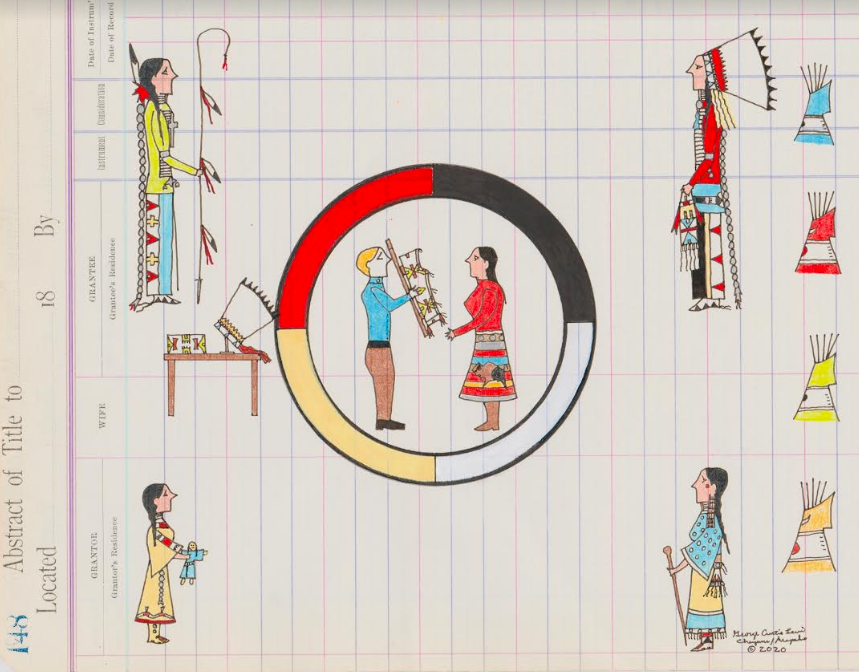
- Details
- By Native News Online Staff
WASHINGTON — Thirty years ago this November, the Native American Graves Protection and Repatriation Act (NAGPRA) was passed by Congress. NAGPRA provides a legal process of repatriation for tribal ancestors’ remains, burial belongings, sacred objects and cultural patrimony that have been looted, stolen and taken in unconscionable ways from tribal nations.
The Association on American Indian Affairs’ Sixth Annual Repatriation Conference: “Growing Community & Moving Forward after 30 Years of NAGPRA” will provide a look back, address where NAGPRA is now and examine what work still needs to be done with this significant human rights law.
The Association on American Indian Affairs, in partnership with the University of Denver Museum of Anthropology, will host a virtual conference from Oct. 26-28, 2020 because of the COVID-19 pandemic. Full scholarships are available, and the deadline to apply is Sept. 4, 2020.
“Repatriation is reparation for the damage caused by centuries of genocide and assimilation. When we come together to achieve the legal process required by NAGPRA, institutions finally discover the truth held captive on their shelves and in boxes, and come closer to achieving their mission to serve Native and non-Native communities alike,” said Shannon O’Loughlin, an attorney and the executive director of the Association on American Indian Affairs.
Anne Amati, NAGPRA coordinator for the University of Denver Museum of Anthropology, says that the “Sixth Annual Repatriation Conference is designed to equip attendees with active opportunities to learn from one another, build community and move forward, together.”
The conference seeks to bring together those on the front lines of repatriation efforts to critically analyze the future of NAGPRA and strategize about how to advance the cause of repatriation in the U.S. and abroad. In essence, the conference and this 30th anniversary of NAGPRA will allow us to look backward “to find tools that allow us to walk into the future” together.
Conference keynote speaker, 2014 Presidential Medal of Honor winner, repatriation visionary, and curator Suzan Shown Harjo will honor the conference with an address about her work on the front lines of repatriation since 1967. Harjo was a principal author of the National Museum of the American Indian and repatriations laws.
In 2019, the National Museum of the American Indian honored Harjo with a daylong symposium on her work to help write, advocate and dream that museum into existence.
“A lot of my once-radical ideas have become federal law,” Harjo said in a statement. “And that makes me grateful for every person and all the peoples who influenced my thinking.”
Check out the full program of the 6th Annual Repatriation Conference. It will be a digital event due to the challenges of COVID-19 and is open to all.
More Stories Like This
Native News Weekly (August 25, 2024): D.C. BriefsNavajo Nation Mourns the Passing of Former Vice President Rex Lee Jim
Deb Haaland Earns Endorsement From Communications Workers of America Local 7076
University Soccer Standout Leads by Example
Two Native Americans Named to Democratic Congressional Campaign Committee's“Red to Blue” Program
Help us defend tribal sovereignty.
At Native News Online, our mission is rooted in telling the stories that strengthen sovereignty and uplift Indigenous voices — not just at year’s end, but every single day.
Because of your generosity last year, we were able to keep our reporters on the ground in tribal communities, at national gatherings and in the halls of Congress — covering the issues that matter most to Indian Country: sovereignty, culture, education, health and economic opportunity.
That support sustained us through a tough year in 2025. Now, as we look to the year ahead, we need your help right now to ensure warrior journalism remains strong — reporting that defends tribal sovereignty, amplifies Native truth, and holds power accountable.
 The stakes couldn't be higher. Your support keeps Native voices heard, Native stories told and Native sovereignty defended.
The stakes couldn't be higher. Your support keeps Native voices heard, Native stories told and Native sovereignty defended.
Stand with Warrior Journalism today.
Levi Rickert (Potawatomi), Editor & Publisher

